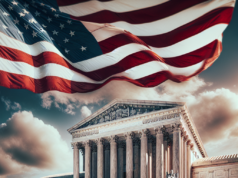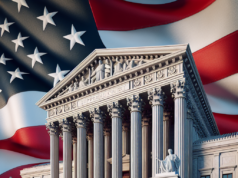In the ever-evolving landscape of law, court rulings serve as pivotal moments that can redefine justice and reshape societal norms. Throughout history, certain decisions have not only influenced the immediate legal context but have also reverberated through time, altering the trajectory of legal precedents. This article explores significant court rulings that have shocked the public and legal community alike, examining their implications and the lessons learned about judicial accountability.
The Evolution of Legal Precedents: A Historical Overview of Court Rulings
Legal precedents are foundational to the judicial system, providing a framework for interpreting laws and ensuring consistency in legal decisions. The evolution of these precedents can be traced back to early common law systems, where judges relied on previous rulings to guide their judgments. Over centuries, landmark decisions have emerged, reflecting societal changes and moral progress. For instance, the establishment of the principle of judicial review in Marbury v. Madison (1803) set the stage for the Supreme Court’s role in interpreting the Constitution. As society evolves, so too does the law, with courts often at the forefront of addressing contemporary issues, leading to a dynamic interplay between legal tradition and modern values.
Landmark Cases That Redefined Justice: Analyzing Key Legal Decisions
Several landmark cases have significantly redefined justice in the United States, serving as touchstones for legal interpretation and civil rights. Brown v. Board of Education (1954) is a prime example, where the Supreme Court unanimously ruled that racial segregation in public schools was unconstitutional, effectively overturning the precedent set by Plessy v. Ferguson (1896). This decision not only catalyzed the Civil Rights Movement but also established a new legal standard for equality. Similarly, Roe v. Wade (1973) transformed reproductive rights by affirming a woman’s right to choose, igniting ongoing debates about bodily autonomy and state intervention. These cases illustrate how judicial decisions can reflect and influence societal values, often leading to significant shifts in public policy and individual rights.
The Role of the Supreme Court in Shaping Modern Legal Standards
The Supreme Court plays a crucial role in shaping modern legal standards, acting as the highest arbiter of constitutional interpretation. Its decisions can have far-reaching implications, influencing legislation and societal norms. The Court’s ability to interpret the Constitution allows it to address contemporary issues that may not have been foreseen by the framers. For instance, in Obergefell v. Hodges (2015), the Court ruled that same-sex marriage is a constitutional right, reflecting a significant shift in societal attitudes towards LGBTQ+ rights. This ruling not only affirmed the dignity of same-sex couples but also set a precedent for future cases involving civil rights and equality. The Supreme Court’s decisions often serve as a mirror to society, highlighting the ongoing struggle for justice and equality.
Controversial Rulings: How Judicial Decisions Sparked National Debates
Controversial court rulings frequently ignite national debates, reflecting deep divisions within society. The decision in Citizens United v. Federal Election Commission (2010) exemplifies this phenomenon, as the Court ruled that corporations and unions could spend unlimited amounts on political campaigns, equating money with free speech. This ruling sparked widespread criticism and concern over the influence of money in politics, leading to calls for campaign finance reform. Similarly, the ruling in Shelby County v. Holder (2013), which invalidated key provisions of the Voting Rights Act, raised alarms about voter suppression and racial discrimination in electoral processes. These decisions not only provoke public discourse but also highlight the complexities of balancing individual rights with collective societal interests, underscoring the contentious nature of judicial authority.
The Impact of Shocking Court Rulings on Future Legal Interpretations
Shocking court rulings often set new legal precedents that influence future interpretations of the law. The ramifications of such decisions can be profound, as they may either expand or restrict rights and liberties. For instance, the Supreme Court’s ruling in Janus v. AFSCME (2018), which held that non-union workers cannot be compelled to pay union fees, has significant implications for labor rights and collective bargaining. This decision not only affects the financial stability of unions but also alters the landscape of worker representation. As courts grapple with the implications of past rulings, the legal community must navigate the challenges of applying these precedents to new cases, often leading to further legal disputes and interpretations that can reshape the law for generations to come.
Lessons Learned: The Importance of Judicial Accountability in Legal Systems
The examination of shocking court rulings underscores the importance of judicial accountability in maintaining the integrity of legal systems. As judges wield significant power in interpreting laws and shaping societal norms, it is essential that they remain transparent and accountable to the public. Mechanisms such as judicial review, public commentary, and legislative oversight can help ensure that judicial decisions reflect the values and needs of society. Moreover, fostering a culture of accountability can enhance public trust in the judiciary, reinforcing the principle that justice must not only be done but also be seen to be done. As the legal landscape continues to evolve, the lessons learned from past rulings can guide efforts to promote fairness, equity, and justice within the legal system.
In conclusion, the landscape of law is continually shaped by court rulings that challenge existing precedents and provoke national discourse. Landmark cases have redefined justice and civil rights, while controversial decisions have sparked debates that resonate across the nation. The Supreme Court’s role in interpreting the Constitution remains critical, as its rulings set the tone for modern legal standards. As we reflect on the impact of these decisions, it becomes clear that judicial accountability is paramount in ensuring that the law serves the interests of all citizens. The journey of justice is ongoing, and the lessons learned from past rulings will undoubtedly influence the future of legal interpretation and societal progress.































